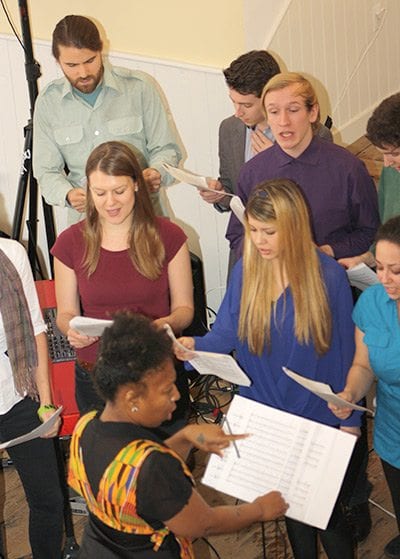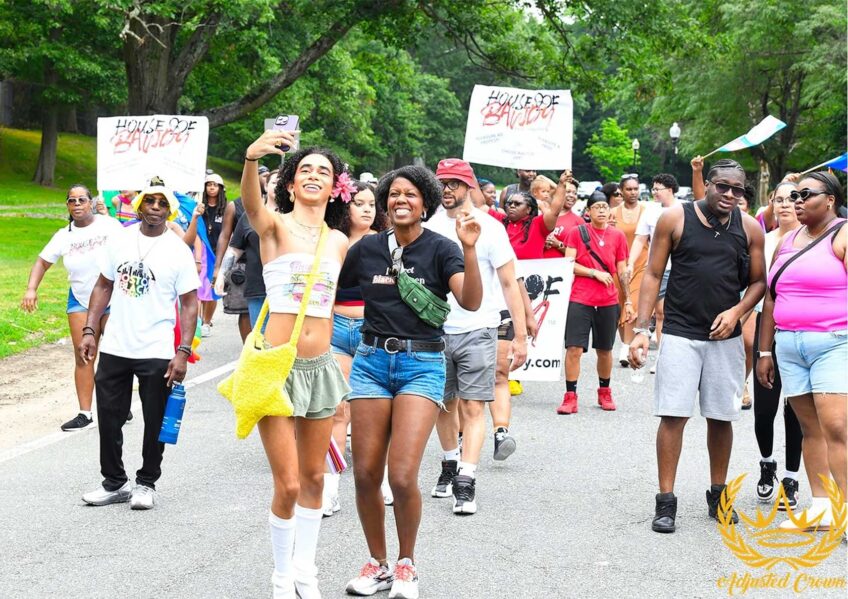
Negro spirituals evolved within American culture at a time when all seemed lost for the people who invented them.
Treated like work animals, American slaves possessed neither full human status nor citizenship in the country where they toiled. Yet over centuries of oppression, slaves forged a distinct identity from which emerged new aesthetic insights and a musical perspective unique only to blacks in the United States.
The grandeur of the Negro spirituals were in full auditory effect recently at the African Meeting House in Boston, which sits on the northern slope of Beacon Hill — a now tony neighborhood once home to Boston’s black community and a major stop on the Underground Railroad where escaping slaves from the South would arrive with the spirituals and freedom on their minds.
Some mournful and melodic, evoking sad suffering sounds, others upbeat and auspiciously hopeful, the spirituals communicate a wide-range of sacred musical innovation.
Giving witness to the vast hymnody of the spirituals at the African Meeting House were the New England Conservatory’s African American Roots Ensemble and Earth Tones, both highly-polished groups led by the charismatic, Nedelka Prescod.
Each group performed splendidly, giving harmonic interpretive accounts of the plaintive, ultimately optimistic songs that slaves created even in the midst of their human misery.
“Elijah Rock,” was performed to an upbeat, aggressive, mellifluous cadence. The song references the Old Testament prophet of the Talmud whom God favored for his fastidious religious practice. According to scriptures, Elijah raised the dead and foretold the coming of the Messiah — characteristics the American slave admired immensely and so casted his legacy into tonal form.
The 10-minute rendition of “Elijah Rock,” arranged by Jester Hairston, featured dramatic vocal scoring that tested the soprano and tenor ranges of the performers and included repeated, elongated, mesmerizing chants that were intended as part of the original worship song.
“The Negro spiritual literally had to do with the African-American singing a line over and over and over again until folks were in a trance. It was about bringing down a spirit,” said Prescod, a former New York City public school music teacher, who founded both ensembles which comprise students only.
The ensemble’s repertoire also includes precedents to the spirituals such as “works songs” invented on the cotton, rice and tobacco plantations of the deep south and bracing “field hollas,” music that was part complaint but also purposeful affirmation of the slave’s relentless efforts to search out the road to emancipation.
Hall Johnson’s “I’ve Been ‘Buked,” is one of the earliest Negro spirituals written in the post-slavery era. The grandson of a slave, Johnson wrote numerous spirituals that were inspired by songs handed down through oral transmission, usually at the local church. The ensemble’s version of “‘Buked” is contemplative and measured with an intensity that speaks to the slave having faith in the face of incalculable odds.
Tapping into the roots of the spirituals, the groups also recited religious and secular folk songs from such countries as Kenya, Nigeria and regions of South Africa, giving insight to the rhythmic foundations that would later support the music styles of such greats as jazz vocalist Billie Holliday, bluesman Robert Johnson, saxophonist Lester Young and gospel artist Mahalia Jackson.
The event, attended by nearly 100 listeners at the renovated church, was a fitting occasion for the African Meeting House, which, under the direction of Beverly Morgan Welch and Lynn Duval Luse, has been celebrating the 150th anniversary of the Emancipation Proclamation, the freeing of American slaves.






